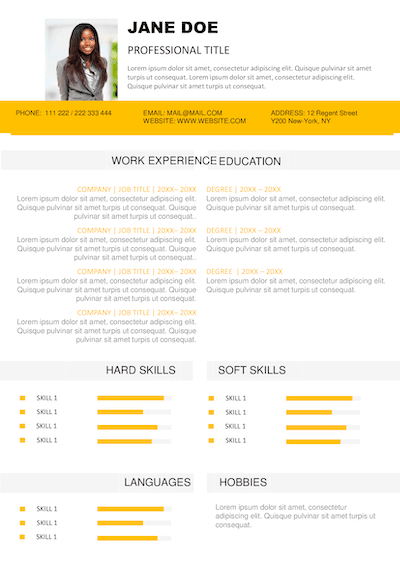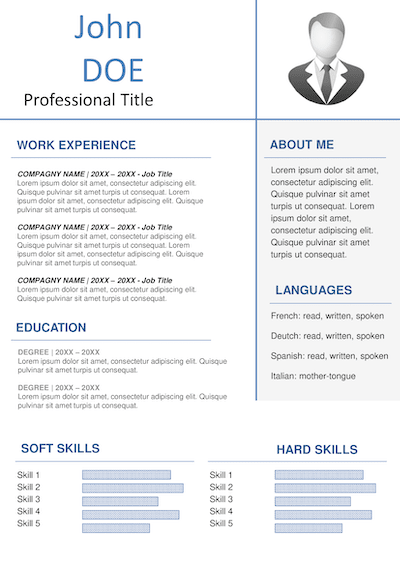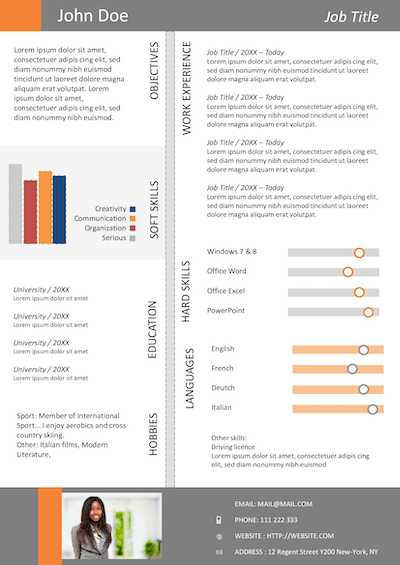Cover Letter Advices : 101
Landing a job is undoubtedly difficult in today’s economy. Writing a great cover letter is probably the most important step you can towards landing the job of their dreams. Why is writing a cover letter so important? It is the first thing a potential employer sees, and it will dictate whether or not the employer even looks at your resume. Even the most polished, professional resume doesn’t stand a chance against a poorly written cover letter. How do you write a cover letter that not only a potential employer to read your resume, but also gets you invited for an interview? Writing a winning cover letter is not difficult if you follow a few simple steps:
Professional Appearance
Just like an employer won’t look at a resume that’s attached to a poorly written cover letter, the employer won’t even bother to read the cover letter if it’s a messy jumble of text. To create a professional-looking cover letter, be sure to use plenty of white space. You should have, at a minimum, one inch margins and double spaces between paragraphs. Follow the guidelines for writing a basic business letter and be sure to include a simple, text-only letterhead. Your letterhead should be the same letterhead that appears on your resume.
Introduction
This is your one and only chance to name drop, so take advantage of it. Potential employers want to know how you heard about the position. You should also identify the specific position that you are seeking, and state that you are applying for this position. Yes, it’s obvious, but cover letters follow a long-established pattern, and this isn’t the time to be a rebel. Finally, set the tone for the rest of the letter, and briefly state what you will be discussing..
Employment Paragraph
If you have more than a few years of experience in the field to which you are applying, your professional experience should be presented before your educational experience. First, write a topic sentence that presents one unified idea. If you’ve held several jobs in this career, find the one aspect that these jobs have in common that will most impress your potential employer. You also need to link this paragraph to your educational experience.
Education Paragraph
Similar to your employment paragraph, you need to develop one unified idea rather than simply presenting a list of all the schools you’ve attended and courses you’ve taken. Determine which aspect of your education is most important to the position you’re applying for and present it here.
Optional Paragraph
A fourth and even fifth paragraph may be added if you need to present additional relevant information. Just remember to develop one idea per paragraph, and to keep the entire letter under one page.
Conclusion
This is your opportunity to tie everything together, leading the reader to invite you to an interview. You need to reference your resume and any other included attachments. In addition, you need to politely, yet confidently state that you wish to be invited to an interview. Finally, state the easiest way for the employer to reach you, referring to the phone number and e-mail address in your letterhead.
Editing and Proofreading
For important documents like cover letters, you need to go beyond your computer’s spell check and grammar check. Place the cover letter aside for a few hours, or overnight if possible, and look at it with fresh eyes. You might find errors that you didn’t see previously. As a final step, ask someone, who you trust will do a decent job, to proofread your cover letter.
Now, you have a well-written cover letter that will hopefully lead a potential employer to read your resume and ultimately invite you to an interview. The rest is up to you!


